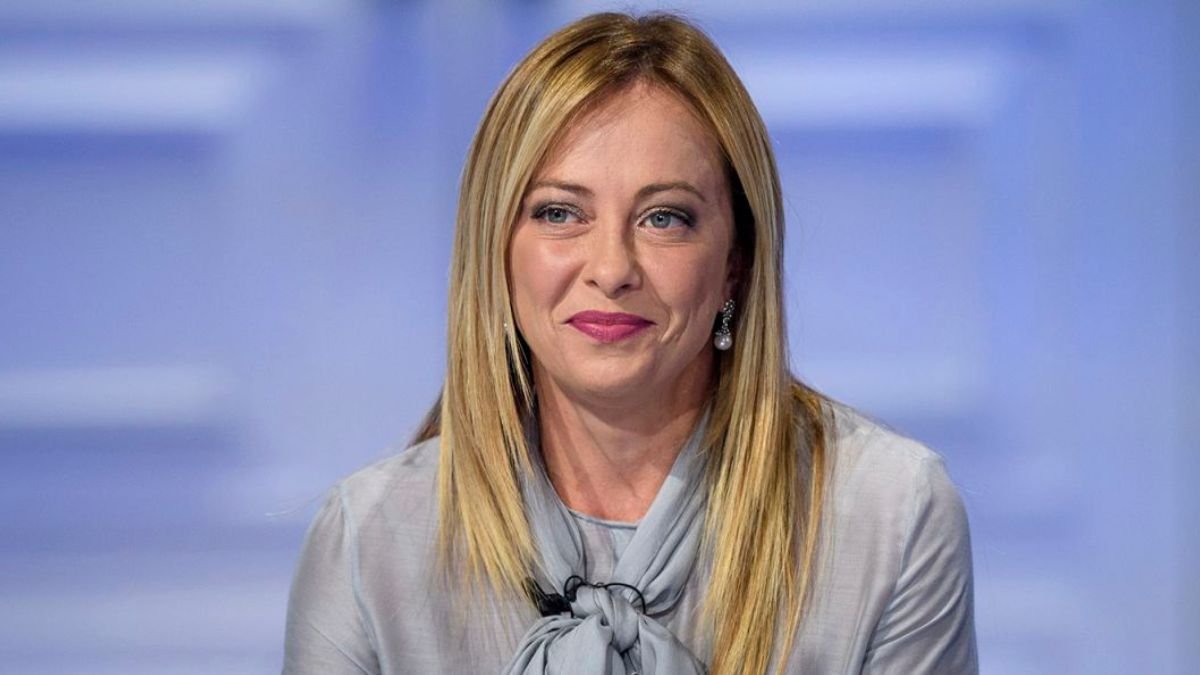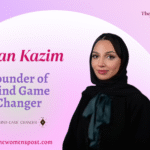Giorgia Meloni, born on January 15, 1977, in Rome, Italy, is currently one of the country’s most famous political personalities. Meloni, a talented orator and staunch conservative, rose to prominence and became a symbol of Italy’s rightward movement. She leads the political group Fratelli d’Italia (Brothers of Italy), which is nationalist and right-wing. Meloni’s party emerged as the largest force in Italy’s general election in 2022, setting the path for her to become the country’s first female Prime Minister, a watershed moment in Italian politics.
Early Life and Political Beginnings
Giorgia Meloni’s early years were impacted by her intense involvement in politics. Raised in Rome’s working-class neighbourhood of Garbatella, she was the daughter of an Italian father and a Sardinian mother. Meloni praises her mother for instilling in her a strong work ethic and feeling of perseverance after her father left the family when she was young.
Her political career began at an early age, when she joined the youth wing of the Italian Social Movement (Movimento Sociale Italiano, MSI), a far-right group rooted in post-fascist ideology. Meloni’s early exposure to the party’s conservative ideas on national identity, traditional family values, and scepticism of European integration influenced her political orientation.
Meloni’s political engagement led her to join Alternativa Sociale, which was eventually absorbed by the right-wing National Alliance (Alleanza Nazionale). Meloni had already acquired a position in the party’s leadership by the early 2000s, and her oratorical abilities elevated her to the ranks of emerging stars.
The establishment of Fratelli d’Italia
Meloni opted to forge her own path after the National Alliance disbanded and united with the centre-right People of Freedom (Popolo della Libertà) party in 2012. She co-founded Fratelli d’Italia, a nationalist, conservative group dedicated to returning Italy to its ancient origins. She became the party’s leader in 2014.
Under Meloni’s leadership, Fratelli d’Italia adopted a strong position against immigration, the European Union, and progressive cultural developments. Her emphasis on Italian nationalism, sovereignty, and the preservation of Italian traditions appealed to many people who felt excluded by conventional political parties. Unlike other populist politicians in Europe, Meloni developed a separate nationalist narrative that included a great respect for Italy’s history and tradition.
She positioned herself as an advocate for family values, the Italian constitution, and the country’s Christian heritage. Meloni’s remarks frequently referenced Italy’s great individuals, such as poet Dante Alighieri, and emphasised Italy’s unique role in European and global history.
The rise to national prominence
Giorgia Meloni’s climb to national politics was slow but consistent. She was Minister for Youth in Silvio Berlusconi’s coalition administration from 2008 to 2011, which increased her exposure. However, it was her leadership of Fratelli d’Italia that propelled her to prominence in national politics.
Meloni’s party had a spike in popularity during the 2018 Italian general election, winning around 4.3% of the vote. While this was insufficient to challenge the major political forces of The League (Lega) and Forza Italia, it was a significant step towards establishing her party as a force to be reckoned with in Italy’s political scene. The move towards nationalism and populism in Europe, as embodied by leaders like Hungary’s Viktor Orbán and Poland’s Jarosław Kaczyński, found an echo in Meloni’s rhetoric.
Meloni’s party won a shock win in the 2022 elections, taking 26% of the vote and becoming the largest single party in Italy’s parliament. This was a watershed moment for Meloni, as she became de facto leader of Italy’s right-wing alliance, which included Lega and Forza Italia. Her election victory was especially notable since it meant the elevation of a woman to the highest office of government in Italy, a country that had never had a female prime minister before.
Become Italy’s First Female Prime Minister
Giorgia Meloni was sworn in as Italy’s 11th Prime Minister on October 22, 2022, making her the first woman to occupy the position. Meloni’s election was regarded as part of a larger wave of conservative, right-wing movements across Europe, with her casting herself as a staunch protector of Italian traditions and sovereignty against what she sees as Brussels and global elites’ overreach.
Many of her supporters celebrated her selection as a victory for Italian nationalism, conservatism, and the preservation of traditional family values. Meloni’s ascension was also viewed as part of a broader backlash against the left-wing politics that had controlled Italy for much of the postwar period.
However, her time as Prime Minister has not been without its obstacles. While Meloni has been hailed for her strong leadership and ability to bring the right-wing coalition together, her administration has had enormous obstacles, notably in terms of Italy’s economic recovery following the epidemic and its position in the European Union. Meloni has stressed that Italy’s interests come first, frequently arguing for a more forceful national approach to EU policy, but she has also demonstrated a readiness to work on critical subjects like as defence and security.
Meloni’s Political Ideology And Vision
Giorgia Meloni’s political worldview combines nationalism, conservatism, and Euroscepticism. She is a strong defender of Italian sovereignty and has regularly spoken out against excessive European Union regulation, which she says damages national identity and autonomy. Her attitude on immigration is clear, calling for tighter border controls and a reduction in the number of people permitted into Italy.
Meloni’s domestic policy is on tax reduction, deregulation, and pro-business policies to revitalise the Italian economy. She has also advocated for improvements to Italy’s judicial system and labour market, arguing for greater efficiency and flexibility.
Meloni has a traditionalist stance on social matters. She has expressed strong opposition to abortion and LGBTQ+ rights, portraying them as part of a larger fight to safeguard the family unit. She has also been sceptical of progressive gender policy and critical race theory.
Legacy and Future Prospects.
Meloni’s history as Italy’s first female Prime Minister continues to unfold. Her ascent to power has clearly established her as a prominent player in the European right-wing political landscape, and her leadership will be widely followed as Italy faces economic, social, and political difficulties in the coming years.
It remains to be seen if Meloni’s popularity will last or if her plans will cause additional discord. What is apparent, however, is that Giorgia Meloni has had a significant influence on Italy’s political scene, and her leadership will definitely leave an indelible stamp on the country’s future.
Also read: Meltem Demirors: A Thought Leader in Digital Asset Investment










